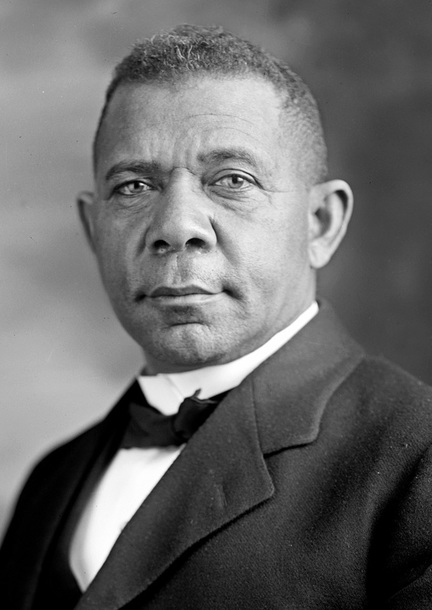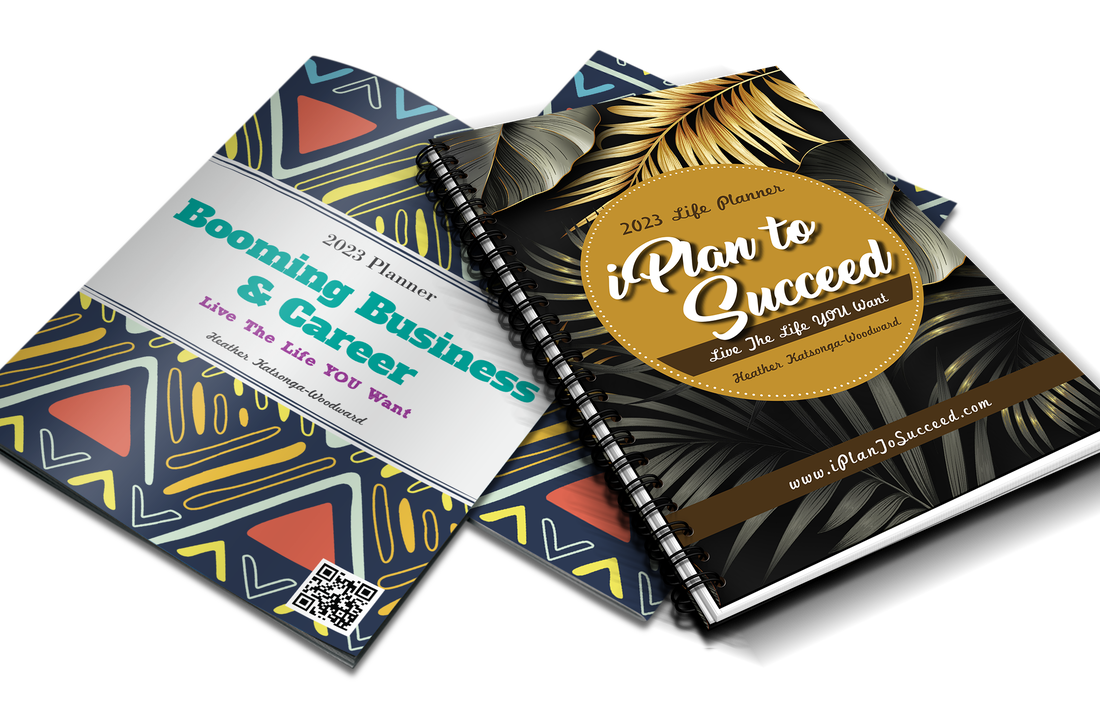 Rating: 6/5 In 32 years of being on this planet, this is by far the most fascinating book I have ever read and I read a lot. This book is a historical treasure and modern guide to business. I learnt things about race relations in the US, immediately following the abolition of slavery and it wasn't what I expected; I gained useful knowledge on how to think about education, civics, ethics, fund raising and public speaking. How so much was squeezed into one book is a real credit to Booker Washington. To read the autobiography of a man that was born in such a different time and place just gave me such a different perspective on life and especially on slavery. This book was written in 1901 by Booker Washington himself; he was born a slave but slavery was abolished before he was old enough to be too useful. That said, it was only when he was asked what games he played as a child that he realized that he could not recall any time in life when he had had a period dedicated to play. He’d always laboured to one degree or another. These sort of descriptions filled me with such a deep sense of pathos. To be honest I had tears on the tips of my bottom eyelids for most of this book not because any specific scene was horrific but because this book gave me a renewed sense of pride and dignity in African Americans and the enduring spirit of black people in general. I wish this book was recommended reading in schools; it’s so well written. Slavery is frequently talked about with a degree of shame. I hadn’t ever fully consciously thought about the nature of this shame and why it was felt until half way through the book when I started discussing its contents with a group that included some of my white friends. I realized that they were so uncomfortable about the things I was telling them that they weren’t looking me in they eye properly then it dawned on me, they feel ashamed and embarrassed by this discussion. None of the people at the table were American, I am not American, but for the first time I realized that because discussions of slavery are inevitably about white vs. black, white people, perhaps more so in Europe have a deep sense of shame that they belong to group that oppressed so many for so long. I personally think the guilt is neither productive nor necessary; it isn't all white people that oppressed black people and many helped in the fight to abolish slavery and many white people today help us in fighting against racial prejudice and injustice. History books tend to smile upon the oppressed and look down upon the oppressor, and rightly so. But this book is very clear in letting us know that the progression of negroes was very much due to huge donations, investments and advice from rich white people. Whites in the American South oppressed the minority black population as slaves from 1619 to 1865. In the book, when Booker is asked to teach a group of Indian students (who had come from India to learn English and other subjects) he is anxious as to how they will receive him because he at the time believed Indians thought themselves superior to the white man and far superior to the black man because black people had allowed themselves to be enslaved in a way that Indian people would not have. This is possibly the only line in the book I disagreed with. In addition to certain classes of Indian people being oppressed even today (e.g the untouchables, the Siddis, etc.), instances occur all the time where people oppress others even their own offspring. A recent notable example is the case in which Austrian Josef Fritzl kept his own daughter as a sex slave in the basement for 24 years! You can never blame the victim. Anyhow, I digress; here are some of the things I learnt from Up From Slavery by Booker T Washington. Many of these really warmed my heart. As a little boy Booker describes two specific instances that gave away some of his thoughts and feelings during the brief period when he lived life as a slave boy: He had no ancestry. The only elderly relative he knew was his mother. He didn’t even know when he was born except that it was in 1858 or 1859 (Wikipedia say 1856), the month and day were not known (slavery was officially abolished in 1865, just to give you a point of reference). He knew his father was a (white) slave owner from a nearby plantation but that was all, he knew no details about him and his father provided no financial or other assistance to his life. The book is quick to mention that although you might have expected black people to hate white people, in many cases it was quite the opposite. He said his owners were, for the most part, kind, decent people and, for instance, when their son was killed during the civil war there was a sense of genuine grief amongst the slaves second only to the grief felt in the big house. As a youngster the now dead young man used to reprimand his own people when they were being cruel to the slaves. Washington recounts one instance when he walked one of his young mistresses to school and saw the scene of young boys and girls learning. He says for him that scene was at the time better than his concept of paradise. He wished more than anything to be part of the learning himself. He recalls another scene when he sees his owner’s daughter eating some ginger bread and he decides there and then that if he ever reached a place in his life where he could eat ginger bread whenever he wanted just like he saw that day, then he would have reached the pinnacle of success. In the months leading up to the abolition of slavery in 1865 he recalls lots of quiet excitement amongst the negroes, this is what he calls black people throughout the book, negro or coloured. He says their singing and dancing lasted a little longer into the night as news of developments reached them via what was then called the grapevine telegraph. He said for a group who couldn’t read they stayed remarkably up to speed with all the latest developments. When they sang songs of freedom, whereas they’d previously been careful to state that they were referring to freedom in the next life they now dared to think that they would enjoy a taste of freedom in the present life. He recalls the exact events that occurred on the day slavery was abolished: He and all the other slaves were called to their masters’ house whereupon a long message was read at the end of which it was announced that they were free to do as they wished. There was inevitable joy and excitement, his mother kissed her children, but as soon as they returned to their log cabins there was a deep sense of, what now? He said most slaves left the plantation just so that they could believe that this was actually true, however, in most cases they returned and entered into paid contracts of employment with their previous slave owners. His own family left the plantation where they were slaves and went to West Virginia not long after the abolition of slavery where his stepfather had found work on a salt farm; this is when it got especially interesting for me. The place in West Virginia where they went to live was worse than the basic log cabin they’d come from because there were no rules about sewage disposal. About a third of the people in what must have been a small shanty town were the most illiterate and destitute white people Booker had ever seen. This stood out for me because you always imagine that blacks and whites were always segregated but in fact poor white people at the time also led lives that were far from comfortable. He says one of the comparative advantages black people had over white people in the South when slavery was abolished was that they had skills, lots of skills whereas the offspring of many white people in the South of America had almost none. They had never been taught things as basic as cleaning, cooking and repairing things let alone specific trades like being a blacksmith or a carpenter. Black people on the other hand had a wealth of monetizable skills. He says, and this was probably the most fascinating fact in the whole book, that some previous slave owners became so destitute that they came to rely upon their former slaves for food and money. No one ever tells you this when slavery is discussed. The two key things black people didn’t have was literacy and property ownership. Literacy was the first things most people yearned to have so day and night schools for black people quickly sprung up after 1865 containing a mixture of young and old. He discusses the hurdles he went through to get an education. Because this was his deepest desire he eventually managed to get himself into a learning institution called the Hampton. In fact, although he did so much more his initial ambition was simply to know enough to read a newspaper or a book. Before getting to Hampton he’d already learnt to read. Booker was his only name when he became a free man. Like most slaves he’d never had a last name; the first time he was asked for his name in a classroom he’d just seen that all his colleagues had two or three names so when his turn came he just said, Booker Washington, for no specific reason and the name stuck from that day. When he later learnt that his mother had actually named him Booker Taliafero at birth he added that to his name. Whilst later books suggest former slaves took on their owner’s last name Booker’s own biography from 1901 disputes this: he says they wanted to break away from that history and so chose their own names. Given he lived the times, I am inclined to believe him over other books I have read. Just prior to going to the Hampton he’d worked for a white woman who was known for being difficult and unable to hold down an employee for more than two or three weeks at a time yet he managed to work for her for 18 months during which time she became very reliant on him. He said she had most exacting standards but it was, in fact, those same standards that helped to secure his place at the Hampton. When he got there he was filthy having had to work his way to the part of Virginia where the school was located and as a sort of test he was asked to clean a room. He says he took more pride in that test than people now probably take in Harvard entrance exams. When his work was inspected, failing to find a spec of dust, it was decided he was good enough to be admitted to Hampton. One of the things that stood out to him in his time at Hampton besides the formidable man that ran it, a former general that all the students loved, admired and aimed to please, was one high status white woman that took a part in its running. Whilst he was a student there she requested he come to help her clean the school before it opened so he turned up for school two weeks early to do this. Opportunities like this were how he funded his education. His cleaning added up towards financial credit in the “accounts department”. He was astounded at why a woman of her social standing could work side by side with him, a negro boy, cleaning the school from top to bottom. He decided then that the only type of life worth living was one in which you dedicated yourself to helping others. His key mission was to bring up the status of black people but as a teacher he soon realized that a lot more had to be taught than just book learning. When he was asked to run a school in Tuskegee, he researched the surrounding areas to assess how black people were living. What he found shocked and appalled him: Most people who had been slaves for a lot longer than he had were eating a very bad diet although they had land they could farm to grow better food. I think he mentions that their diet was almost entirely pork and corn bread. This food wasn’t eaten at a table but on the go en route to work or as the children played usually without cutlery. Most people had no hygiene practices whatsoever: they did not bathe or brush their teeth. These things had to be taught in the school. Some families had bought things like an organ at $60 or a watch for $12 notwithstanding the fact that they could neither play the organ nor tell the time. And in fact, they were buying these expensive items when basics were missing. One notable time he was dining with such a family, I think they had a fine watch on display and yet when five of them sat to eat at the table there was only one fork between them. Forks cost a few cents but prioritising finances was a skill they had very little concept of; many were keen to own these objects to almost prove to themselves they had broken from the past. Most former slaves still had the whole family sleeping in one room. To explain the extent to which coloured people had been dehumanized, Booker recounts a time when he interviewed a former slave. When he asked him how many had been sold the day he had been sold the response was, “Five of us. Me, another man and three mules.” His classroom had people as old as 50 and as young as 15, everyone wanted to learn. From Tuskegee, Booker Washington grew into the formidable figure of African American history that we appreciate today. Everything about his life intrigued me but his earliest years were especially gripping. I also laughed at his differentiation of the English vs. Americans. Booker says he was fascinated at how servants in England dedicated themselves wholeheartedly to the role as they expected to specialize in the trade and hence took it very seriously where as in America the servant one day expected to become the master and hence was less consumed/dedicated to the role. He decided not to opine on which approach was better. He also said one thing he never got used in speaking to an English audience was their seriousness: things that would have an American audience roaring with laughter didn't cause the English to crack so much as a smile! Up From Slavery by Booker T Washington is available on amazon.com and amazon.co.uk.
6 Comments
Booker was indeed an inspiring character and leader. An important reminder that knowledge is power ( good quality learning is critical) and education is the only real leveller in any society. It allows us all to sit at the same table, irrespective of background, race, colour, creed etc. A great review Heather .... in your BHM you may wish to add Marcus Garvey to the list if you've not done so already, Best Remi
Reply
Heather
24/8/2016 05:44:29 am
Thanks Remi! I have come across him in a book on Malcolm X and I plan on reading a little more about him. He was the man that inspired the preachings of Earl Little, Malcolm X's dad so I expect he must be rather interesting.
Reply
Sandy
24/8/2016 10:27:54 pm
I felt a chill go down my back. My eyes are tearing. I miss my dad. I digress. That was the first book my father had me read, when I was 12, at home in the evenings along with my other studies. I also had to do a book report for my dad.
Reply
Heather KW
25/8/2016 06:19:37 am
Oh, sorry Sandy, may your dad's soul rest in peace. I will definitely read George Washington Carver's Biography now that you have recommended it. I feel so much richer knowing this history.
Reply
Heather KW
25/8/2016 06:20:17 am
I'm looking that up now! Thanks :)
Reply
Leave a Reply. |
Heather Katsonga-WoodwardTime allowing, I love to read. If I read anything interesting, I will blog about it here. 2019 Life and Career PlannerCategories
All
Archives
January 2019
|
Heather Katsonga-Woodward, a massive personal finance fanatic.
** All views expressed are my own and not those of any employer, past or present. ** Please get professional advice before re-arranging your personal finances.
 RSS Feed
RSS Feed




